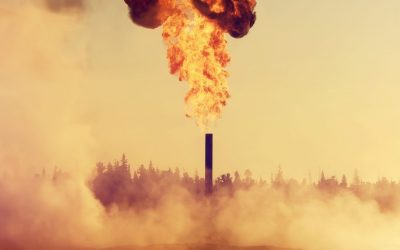New Report Details Fracking’s ‘Widespread and Severe Harm’ to Health and Climate
"From a public health perspective and a climate perspective, stopping fracking is imperative."

All Global Research articles can be read in 51 languages by activating the “Translate Website” drop down menu on the top banner of our home page (Desktop version).
To receive Global Research’s Daily Newsletter (selected articles), click here.
Visit and follow us on Instagram, Twitter and Facebook. Feel free to repost and share widely Global Research articles.
***
Combining findings from more than 2,000 scientific and government studies, a report published Thursday details how hydraulic fracturing has “dire impacts on public health and the climate.”
Physicians for Social Responsibility and Concerned Health Professionals of New York (CHPNY) released the eighth edition of their Compendium of Scientific, Medical, and Media Findings Demonstrating Risks and Harms of Fracking, a comprehensive examination of the state of the hydraulic fracturing industry and its impacts.
“The scientific evidence reveals conclusively that fracking causes widespread and severe harm to people and the climate,” Sandra Steingraber, CHPNY co-founder and compendium co-author, said in a statement.
“For over 10 years, individual studies have demonstrated impacts in multiple areas, including toxic air pollution, water contamination, radioactive releases, earthquakes, methane emissions, and much more,” she added. “The compendium takes stock of all the science together, which shows that continuing and expanding fracking brings with it a grave cost.”
#Fracking swings a wrecking ball at our climate. Exporting fracked gas as #LNG turns catastrophe to calamity because the massive energy required for super chilling and evaporative cooling adds even more emissions to our atmosphere.
Read the science, get the facts.
— Dr. Sandra Steingraber (@ssteingraber1) April 28, 2022
The report reveals that:
- Global expansion of fracking and liquefied natural gas (LNG) is fueling the climate crisis, driving the current surge in global levels of methane, a greenhouse gas that is up to 87 times more potent than carbon dioxide over a 20-year period and which has contributed 40% of all global warming to date;
- LNG is even worse for the climate, as the process of liquefying the gas requires tremendous amounts of energy;
- Carbon capture and storage (CCS) fails to mitigate the dangers of fracking, as it does not actually capture methane emissions but instead makes local air pollution from fracking infrastructure worse;
- Drilling, fracking, storing, transporting, and disposing of oil and gas cause serious harm to human health, including respiratory illnesses, cardiovascular disease, and impairments to infant and maternal health; and
- Fracking is an injustice, as toxic air pollution, water contamination, and other impacts disproportionately affect communities of color and low-income communities.
According to the publication:
In sum, the vast body of scientific studies now published on hydraulic fracturing in the peer-reviewed scientific literature confirms that the climate and public health risks from fracking are real and the range of environmental harms wide. Our examination uncovered no evidence that fracking can be practiced in a manner that does not threaten human health directly or without imperiling climate stability upon which human health depends.
“People, nurses, and doctors across the United States have been pointing to harms from drilling and fracking for well over a decade,” said Barbara Gottlieb, environment and health program director at Physicians for Social Responsibility. “Now there is clear and overwhelming scientific evidence showing that fracking makes people sick, degrades the environment, and imperils the climate.”
“From a public health perspective and a climate perspective, stopping fracking is imperative,” she stressed.
Dr. Kathleen Nolan of Physicians for Social Responsibility and Concerned Health Professionals of New York, said, “States and countries that have banned fracking are leading the way to a stable and healthy climate future, preventing poisonous fracking chemicals from causing birth defects, cancer, heart disease, asthma and pneumonia, diseases of other organs and tissues, and early death.”
“Banning fracking also prevents induced earthquakes and greatly reduces emissions of methane, carbon dioxide, toxic gases, and particulate matter into our atmosphere,” she added. “We know what must be done: Now we must do it—and do it quickly.”
From Common Dreams: Our work is licensed under Creative Commons (CC BY-NC-ND 3.0). Feel free to republish and share widely.
*
Note to readers: Please click the share buttons above or below. Follow us on Instagram, Twitter and Facebook. Feel free to repost and share widely Global Research articles.
Featured image is from OtherWords.org

